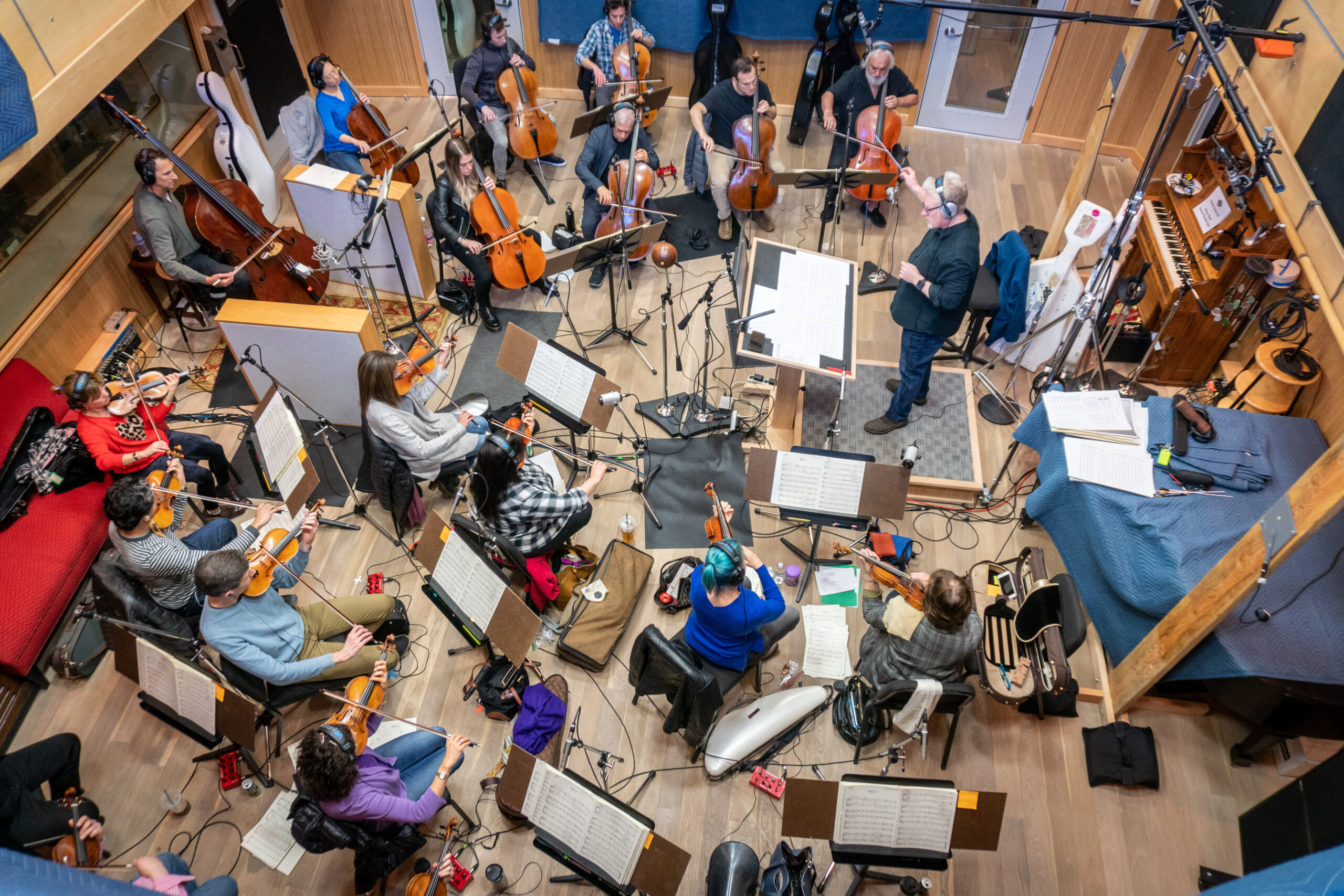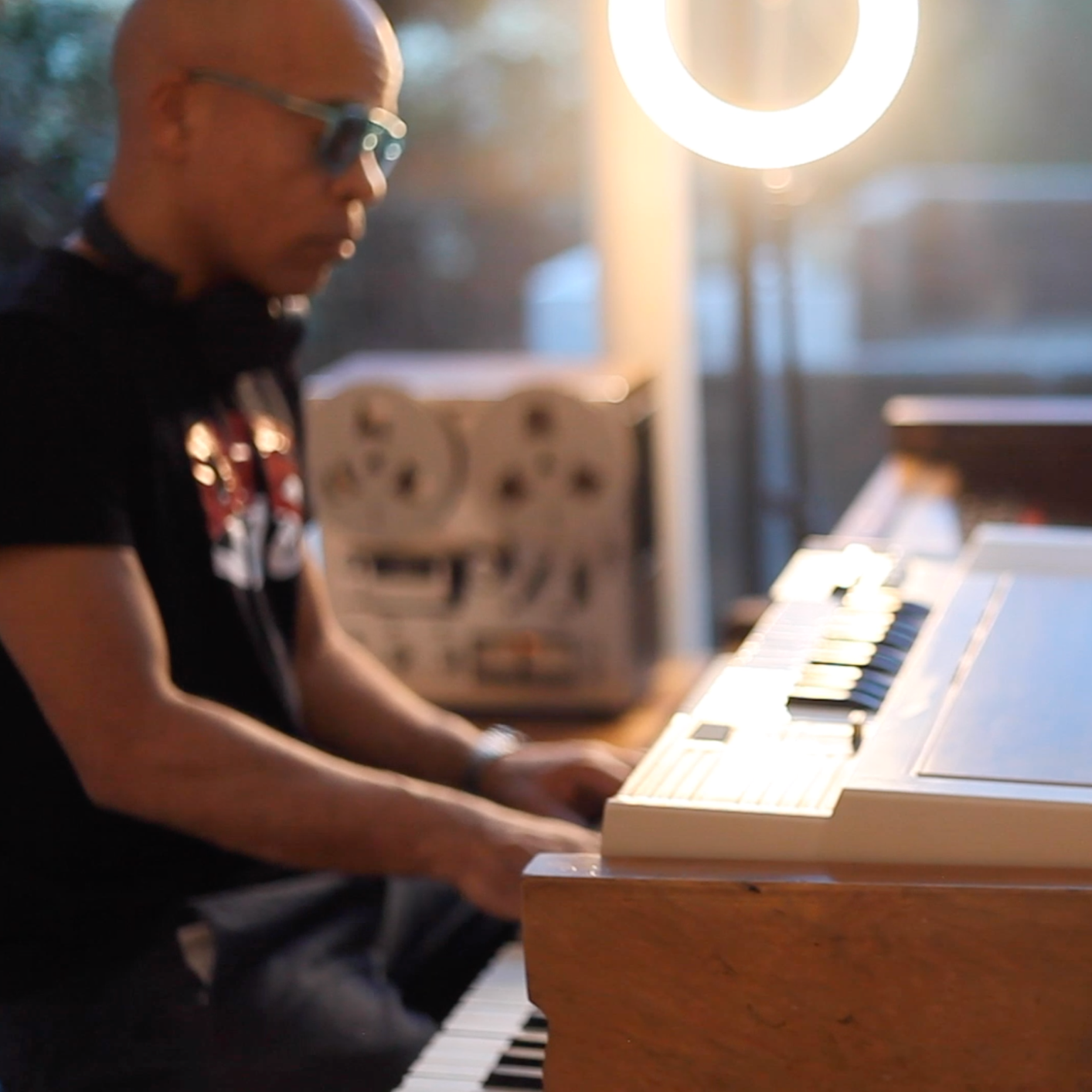
The dark-drenched, eerily desolate landscape of “True Detective: Night Country” has revealed many chilling secrets during the fourth season’s ongoing run on HBO and Max. But perhaps no sonic revelation is more surprising given the show’s overwhelming, disturbing power than just how beautifully meditative Vince Pope’s scoring is when unthawed outside of its impactfully subtle use in the show itself. Conveying an ancient, buried tribal culture underneath a mining town determined to smother it, the mystical atmosphere of indigenous female voice merges with strings, brass and ethereal electronics to paint an otherworldly, transfixing musical picture – one soon to be release by WaterTower music.

But of course, a score must work with its intended storytelling in the first place, and Pope does his own twisted, spiritual digging into the findings of unlikely, hard living partners Liz Danvers (Jodie Foster) and Evangeline Navarro (Kali Reis), both compelled via guilt and spectral visions to uncover a tribal activist’s murder years ago. It’s a theme of lost innocence and magical realism that first united “Night Country” creator Issa López and Pope in 2017’s acclaimed “Tigers are Not Afraid,” a powerful look at children caught up in the endless adult drug wars of Lopez’ native Mexico. Before then, the originally mathematician-minded Pope was making his name in such often mystery-minded British episodics as “Wallander,” “Black Mirror,” “Misfits” and “Undercover.” After “Tigers,” he’d continue with emotionally diverse programs as “This Way Up,” “The Holiday” “You & Me,” “Riches” and “Silent Witness.” But it’s in Pope’s striking work on the weekly must-see, soon-to-be-solved “Night Country” which has truly brought his impressive voice to American ears by way of Ennis, Alaska. And for many viewers gripped by the uncanny musical chill, it’s a hypnotic cry in the snowy, spirit-filled moral wilderness that viewers won’t soon forget.
Tell us about your musical start and what led you to composing?
I come from a very musical family – My father was a jazz musician and he made sure that me and my three elder brothers had piano lesson from a very young age. There was always someone practicing in the house as a child. In fact at one time we had two grand pianos and an upright all under one roof.
How did you come to specialize in television, and do you welcome long form scoring over the territory afforded by a film?
I first started in the advertising industry and came reasonably late to TV and film. When I made that change it was interesting to use the skills I had developed writing very short motifs and in many very differing styles.
 How did you first collaborate with Issa on “Tigers Are Not Afraid?” and could you talk about your score for it?
How did you first collaborate with Issa on “Tigers Are Not Afraid?” and could you talk about your score for it?
Issa rang me from Mexico because she had been listening to my work for “Black Mirror” – and the episode “Be Right Back” She loved that and we started talking from there. She wanted something that played against the horror of the story she was telling in “Tigers.” So the score is spiritual and beautiful to chime with what is the innocence and spiritual nature of the children’s inner lives. Issa also really is very good at describing what works and what doesn’t work for her.
As it also dealt with magical realism and tragedy, do you think “Tigers” was a warm up to “Night Country?”
I think in many ways it was. Issa would probably be the first to admit that she has revisited some of the themes and idea the inhabited “Tigers.”

“Night Country” creator Issa López
Was your work with Issa different here given the much-expanded scope of an HBO production?
It was different – we probably both wanted to work in a similar way to “Tigers,” but a six-part HBO production is quite a different beast.
Having started out in math before music, do you think there’s a precise quality to scoring, as well as real-life detective work?
I am probably quite a precise person, yes. I was being asked to provide more general themes quite early on, but I like getting into the detail of a scene when I am composing from the get-go. I also rely less on improvised ideas which I know some composers use as a creative tool – i.e. getting a performer to just play what they feel.

How did you want your music to help put together the clues here, especially in the detectives’ minds?
The music doesn’t really focus on that too much – my score is very atmospheric and develops in quite subtle ways.
Talk about your approach to Liz and Evangeline. How do you see them as sympatico, as well as contrasting? And how you wanted to grow the “buddy cop” relationship between them?
Their relationship on screen is so dynamic and central to making this series. Evangeline is the more spiritually centered character and as such the music had to reflect that to some degree. I used voice quite a lot to capture this side of her later. And for Liz she goes on that journey into that side of her understanding helped by Angelino – so the music for Liz starts somewhere and then ends somewhere else. In fact, the voices in the score for her develop as she does.

What inspired the use of female voices? To me, they cast a powerful, ancient spell in the tradition of Peter Gabriel and Lisa Gerrard’s work.
I think that was inspired by the place, the setting and the spirituality that the Native American cast over this town of Ennis. The choirs can be angelic, mysterious, beautiful and scary all at the same time. It’s a perfect match for this series I think.
Tell us about how you used sampling and electronics here, and how did you want to blend them with organic instruments, particularly when it comes to the strings and brass?
With “Night Country” I think it works best when it blends in with the more archetypal score elements. Issa and I talked about electronic music and how it’s quite fashionable at the moment – but neither of us wanted it just to be there. So hopefully when it’s there it’s subtle and adds rather than overpowering. The use of strings and more ethereal elements felt very natural to the setting and sense of atmosphere we were trying to create.

Whether or not the solution to the mystery proves genre-related, there are a lot of horror-sci-fi elements in the series with its ghosts and mystical visions. How much of that kind of fantastical quality did you want to bring to the score, and were you ever worried about pushing it over too far into that direction?
Horror is one of the words which I am never sure if “Night Country” goes totally there. I guess in a way I got used to all those themes, so I don’t see it as horror. It’s dramatic and scary in places, but again this is serving rather than driving the story and I think the score had to do the same. It reflects the way this story is being told. So the short answer is that I certainly didn’t go full-on “horror.”

On that note, were you a fan of John Carpenter’s “The Thing?” (which gets an Easter egg shout out here). And are there are any scores or composers that you wanted to draw from for “Night Country?”
I absolutely love “The Thing” when it first came out – especially those dogs – I did listen to quite a few contemporary horror scores – I think Robert Aiki Aubrey Lowe’s score for “Candyman” is brilliant.
Beyond being incredibly eerie, would you say there’s a meditative, spiritual quality to the show and your music?
I used the human voice in order to capture some of that quality. It’s so beautifully versatile and speaks to us in ways that convey emotion on a higher plain.

How did you want to capture the tribal quality of the original Eskimo inhabits of Ennis, who’ve been subsumed into this mining-ruled town?
I worked with this amazing vocalist and Canadian Inuk throat singer Tanya Tadaq and she brought a real stature and originality to the score. But at the same time steeped in the tradition.
How do you play the ideas of cold and continuous night?
Certain bowing techniques really help capture the coldness and the desolation. I also experimented with woodwind and found an instrument, the Fujara, which is a huge bassoon mike thing that laid some great foundations for drones and atmospheres.
 In what we’ve seen so far, what was the freakiest scene for you to score?
In what we’ve seen so far, what was the freakiest scene for you to score?
Well, I guess at the end of Ep3 we see one of the survivors of the corpsicle in his hospital bed – and he’s in a pretty bad way to say the least. I actually loved scoring that scene.
“Night Country” makes powerful use of alternative songs as well, which your scoring seems very much a part of. Was that always tonally the plan?
I think because of Issa’s sensibility the score and the tracks just works as part of her larger vision.

Back in England, you’re involved with another show about science and pathology called “Silent Witness.” What makes that scoring different, and is it a genre you’re particularly drawn to?
I like drama in particular – I’m not necessarily drawn to police or forensic work no. I guess detective-driven scoring can sometimes be formulaic and that’s the challenge – to escape that kind of writing.
 In Britain, You’ve also scored a show dealing with the real, true-life injustice of the government with the miniseries “Mr. Bates vs. the Post Office,” which has outraged the country. What do you think of the responsibility of composing for a project that can cause social change, and redress?
In Britain, You’ve also scored a show dealing with the real, true-life injustice of the government with the miniseries “Mr. Bates vs. the Post Office,” which has outraged the country. What do you think of the responsibility of composing for a project that can cause social change, and redress?
To be honest I would love to do more of that. You never know whether something will effect real change. That particular drama really has told a story that needed to be heard and that has made a difference. Being part of that felt really good.
What’s it like to have truly landed on American TV territory with “True Detective,” which has quickly achieved “must watch” status here?
Well, it’s great. It was fantastic seeing all the promotion that show has garnered – and deservedly so. Hopefully they will be hearing lots more of my work in the future.

Given that each season of “True Detective” is its own case, is there any crime or location you’d like to score should you and Issa return?
Hmmm. I think maybe the international space station. In space no one can hear you scream.
Watch “True Detective: Night County” on Max HERE, and visit Vincent Pope’s website HERE
Special thanks to Christian Endicio at White Bear PR


